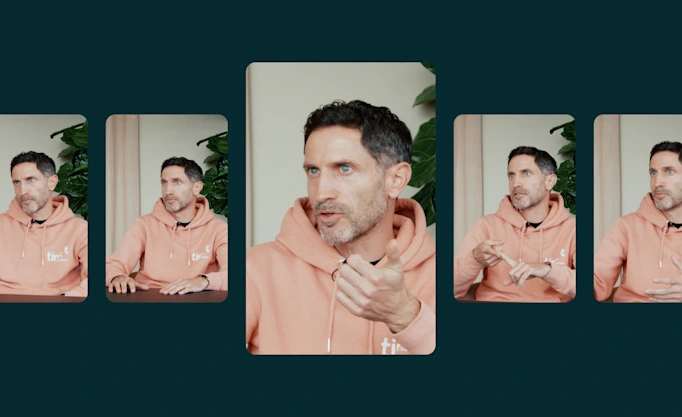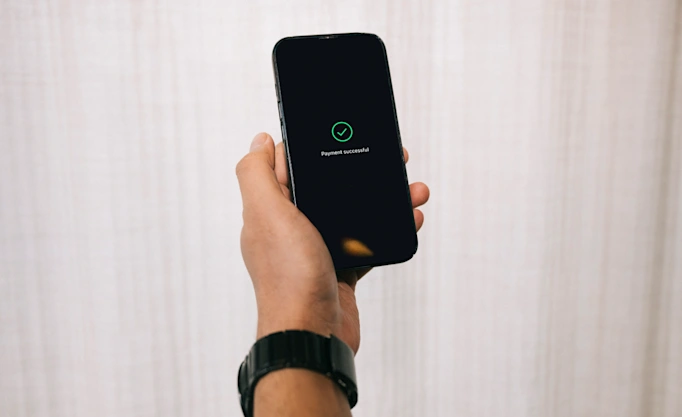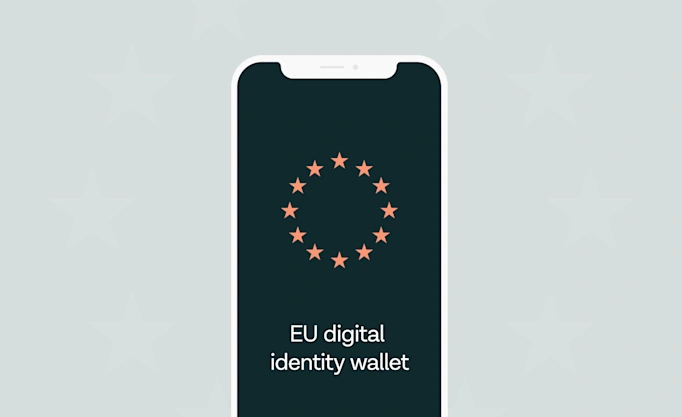3 ways open banking can promote sustainability

Carbon tracking tools are all the rage, but there are other ways to promote sustainability with the help of open banking. Here are some examples of how open banking can help you and your customers go green – while gaining new business opportunities.
Open banking can help businesses promote sustainability in different ways.
It has the potential to help people make more sustainable choices, as it’s easier to track spending habits with the help of open access to financial data.
It’s also helping accelerate digitalisation and phase out paper-based processes, presenting great opportunities for businesses to lower their own carbon footprint.
Sustainability is important – for businesses as well as individuals. According to a McKinsey survey, more than 50% of executives consider sustainability as ‘very’ or ‘extremely’ important. Despite this, only 30% of companies actively pursue ways to embed sustainable practises into their day-to-day operations.
But organisations aiming to 'go green' are actually gaining more benefits than those who don't. Such as a better reputation, long-term cost savings, and growth opportunities. In today’s volatile market, being sustainable isn't just great for the planet – it also makes great business sense.
There are many ways in which companies can make a change for the better, such as digitising their current processes. They can also use data insights to help shed light on how people can make more sustainable choices.
That’s where open banking comes in. Here are three different ways you can use open banking to promote sustainability.
1. Providing valuable data
In recent years, consumers have become more conscious of the environmental impact their purchases may have. But it's often hard to understand the extent of the adverse effects without access to transparent data.
Here's where open banking can help. It offers valuable insights into people's transactions – such as money spent on travel or energy – enabling them to make greener choices in the future. Open banking aggregates, categorises and analyses billions of transactions every day. Financial institutions can then use this data to identify patterns and provide individuals and businesses with actionable goals. Some companies have already begun to use open banking to help their customers live greener lives.
2. Motivating people to make a change
Although we all need to play our part in reversing the devastating effects of climate change, simply stating the facts isn't always enough. In some cases, it may help motivate people to create a greener future and help them cut through the smoke and mirrors of greenwashing.
Luckily, open banking gives companies the chance to reward their customers for making truly sustainable choices. For example, a Stockholm-based fintech startup, Gokind, is creating the world's first 'loyalty programme for the planet'.
The loyalty programme removes the need for consumers to trawl through lengthy sustainability reports by sharing which companies actually live up to their promises. As such, people can quickly discover more ethical places to shop, earning rewards and loyalty incentives in the process.
3. Reducing paper waste
Gone are the days when stacks of paperwork were necessary to conduct business. Yet, shockingly, the global consumption of pulp and paper is expected to double between 2010 and 2060. The world's forests are already in a critical condition and constantly declining. Companies must find ways to eliminate their dependence on paper.
Open banking has proved to be highly effective in helping businesses to go paperless and deliver more speedy services to their customers.
Processes that traditionally relied on paperwork can now be done digitally. Risk assessments, as an example – customers would previously have to submit physical documentation and financial statements to be processed and reviewed. Now they can just give access to their financial data with a few clicks. No paper – or transportation of paper – needed.
Businesses can also leverage open banking to help consumers reduce their waste. For example, German startup epap teamed up with Tink to reinvent paper receipts via an app that provides a digital, sustainable way to keep track of them.
Consumers can add electronic receipts from over 4,500 stores across Germany into the app, which epap then categorises and uses to calculate spending against income. Once a user connects their bank account, the app matches each receipt to their online banking transactions. This offers people greater insights into their financial information than ever before and motivates them to make a switch from paper receipts.
Not only can customers use the data to make smarter spending decisions, but digital receipts also help to prevent tonnes of paper from heading to landfill each year.
Open banking – the key to a greener future?
As the saying goes, ‘knowledge is power’, and nothing is more accurate when it comes to making more sustainable choices. According to the European Banking Authority, there were 101.6 billion credit and debit card transactions last year. This is good news, as it presents plenty of opportunities to gather insightful data on consumer spending habits.
By harnessing the power of open banking, businesses can arm themselves with quality data – or knowledge, really – to build services that really make a difference and build their reputation as an agent of change.
Tink is already building an ecosystem of partnerships aimed to help banks offer better digital experiences, increase efficiency and save the planet – all at once. If you’d like to learn more about some of these partnerships, or how open banking is already being used in the fight against climate change, check our other articles on sustainability.
More in Open banking

2025-06-09
11 min read
The case for “Pay by Bank” as a global term
Thomas Gmelch argues that "Pay by Bank" should be adopted as a standard term for open banking-powered account-to-account payments to reduce confusion, build trust, and boost adoption across the industry.
Read more

2025-06-02
3 min read
Tink joins Visa A2A – what it means for Pay by Bank and VRP
Visa A2A brings an enhanced framework to Pay by Bank and variable recurring payments (VRP) in the UK, and Tink is excited to be one of the first members of this new solution.
Read more

2024-11-19
12 min read
From authentication to authorisation: Navigating the changes with eIDAS 2.0
Discover how the eIDAS 2.0 regulation is set to transform digital identity and payment processes across the EU, promising seamless authentication, enhanced security, and a future where forgotten passwords and cumbersome paperwork are a thing of the past.
Read more
Get started with Tink
Contact our team to learn more about what we can help you build – or create an account to get started right away.
